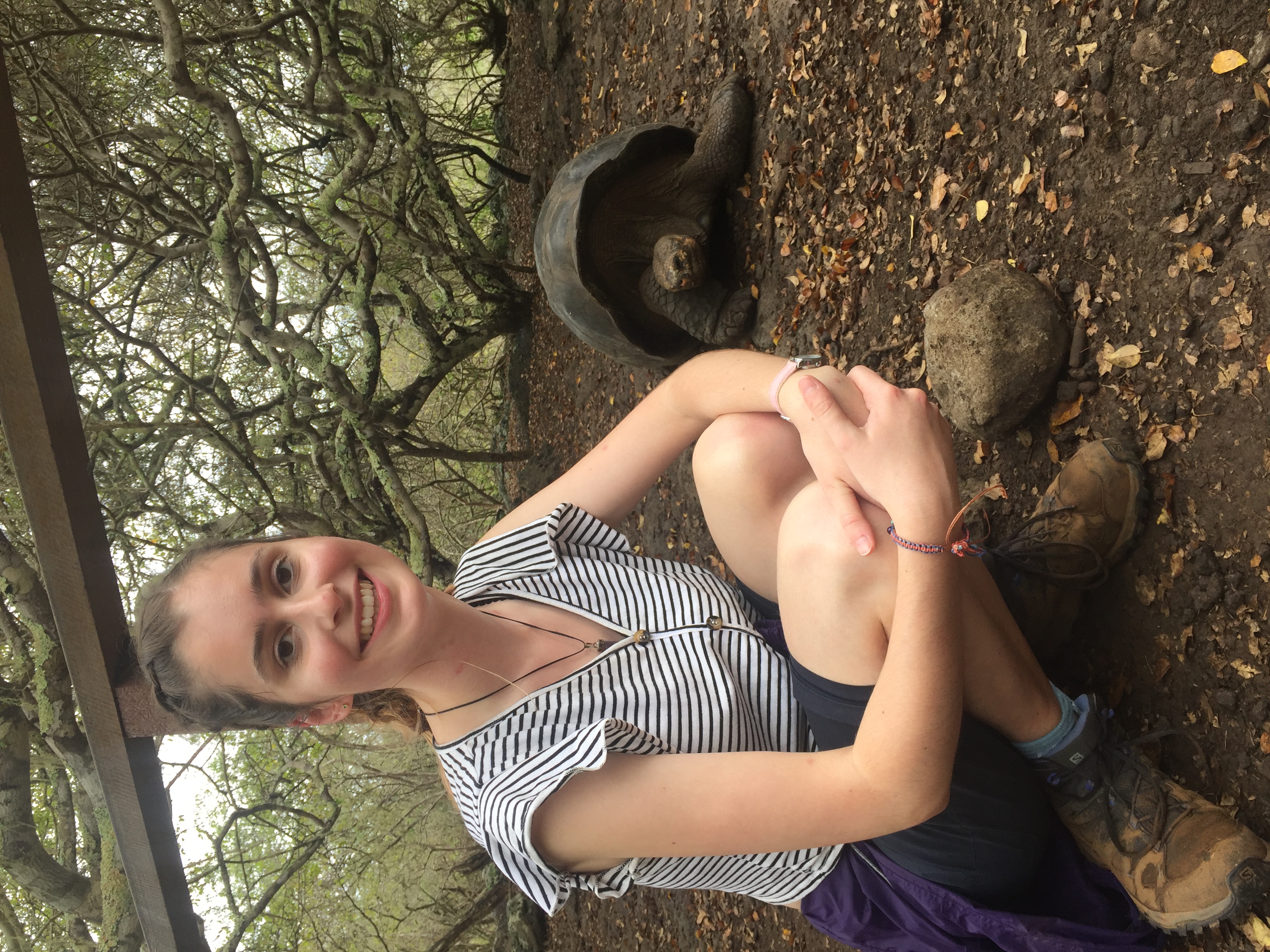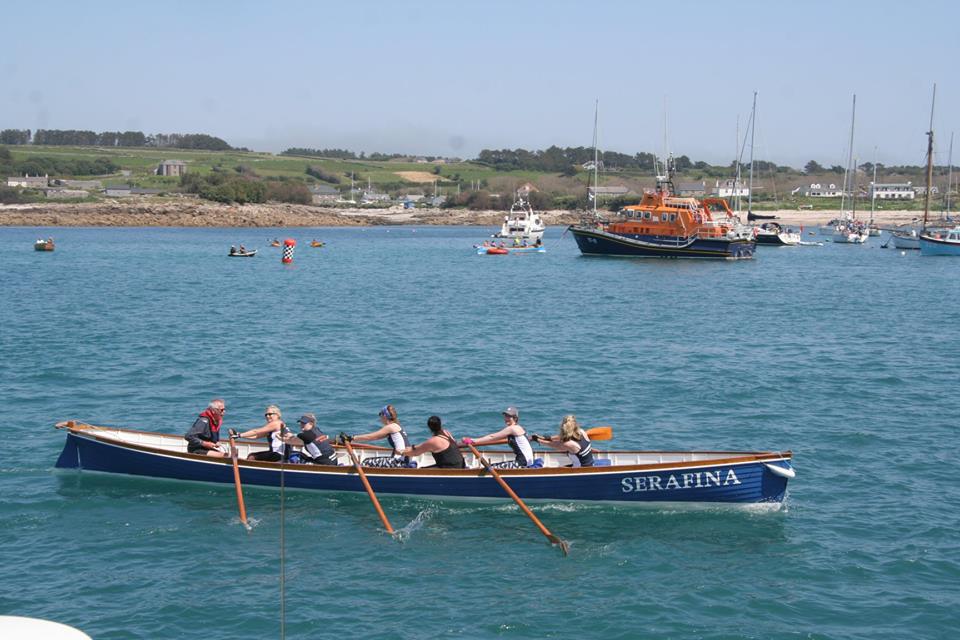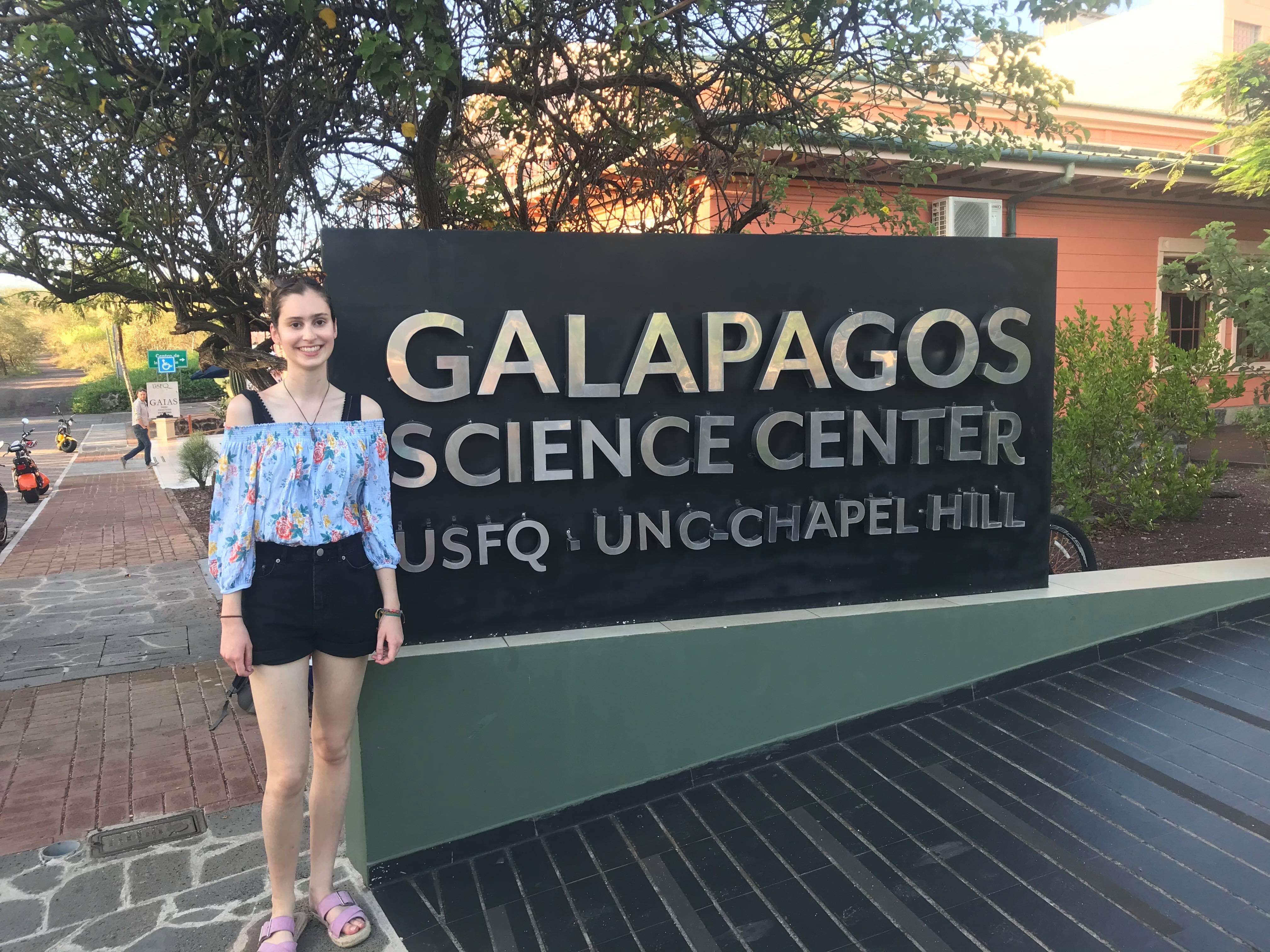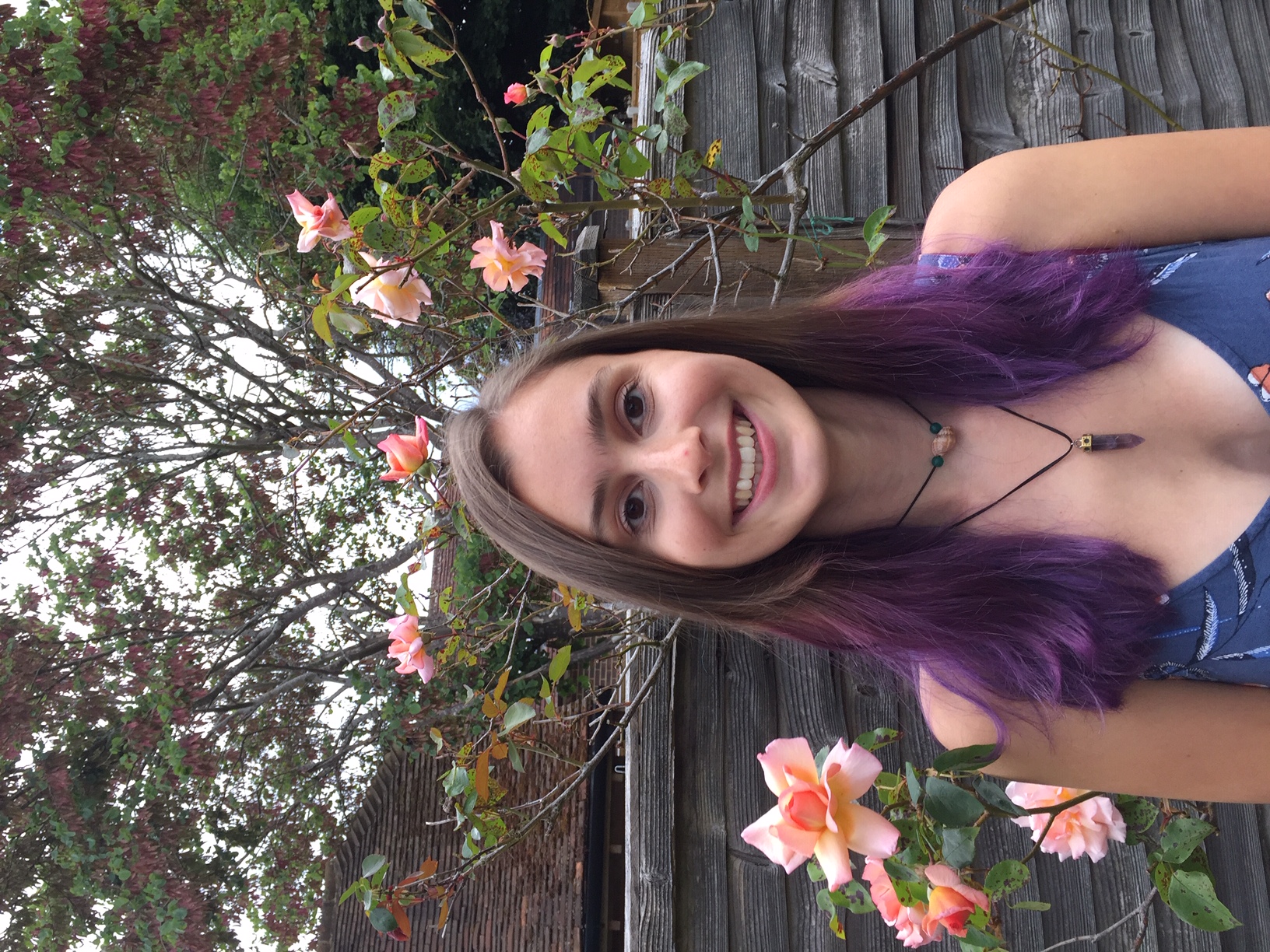We are looking back on some of our BSc graduates who have excelled in scientific research, ecology and conservation around the world since studying with us.
Today we meet Maddy who graduated from BSc Zoology with Professional Placement in 2020 and is now a volunteer writer/science communicator for Conservation Careers and Bloom in Doom magazine.
Hi Maddy! It has only been a year since you completed your studies with us, why don’t you tell us a bit about what you’re up to now?

I am currently volunteering with various organisations. I am a writer/science communicator for “Conservation Careers” and “Bloom in Doom” magazine. Conservation Careers a careers advice centre for conservationists and in my role I research different careers in conservation and then interview people about their job and/or organisation. I write up these interviews alongside visual content (eg, photos, YouTube links) which are subsequently published on our website. Here, people from all over the world and at any career stage can read them to help gain insight and advice about different conservation careers. Bloom in Doom is a magazine which focuses on positive and solution-based environmental journalism and I contribute articles about topics I am passionate about which also fit their ethos.
In addition to these roles I am also part of the admin team for Falmouth Marine Conservation. Here I answer enquiries from the public about what we do and how they can get involved, liaise with other members of the committee to support them in their roles and set-up and attend meetings to discuss the progress of our projects and future events.
Despite having graduated in the middle of a Pandemic, can you tell us a bit more about how you came to do what you are doing now?
Obviously for everyone who graduated last year it’s been a bit of a bumpy road! After graduation, I made a last-minute decision that I wasn’t ready to leave Falmouth yet, but I hadn’t got a job or a house lined up so I moved back to my family home over the summer whilst I house and job hunted. Whilst scrolling through job and conservation websites I came across the voluntary blogging role advertised by Conservation Careers which really interested me, so I applied for it and got it! This was a great “in” to science communication as they mainly wanted people who were passionate about wildlife conservation, and they gave lots of guidance on how to conduct the interviews and write them up.
I also managed to find a temporary paid job whilst at home through a family friend, where I worked in a warehouse packing balloons for places like party shops (yes, someone does that by hand). Initially I saw it as just a way to earn a bit of money but it actually ended up providing me with skills which helped me land my first “proper job” working as an Administrative Coordinator at an animal IVF company (a job which I have since left to focus on my passion for science communication and explore other avenues). This allowed me to move back to Cornwall and, as it was a part-time job, I still had time for other things I enjoyed, like volunteering for Conservation Careers.
I then got involved with Falmouth Marine Conservation actually through volunteering with Conservation Careers; I interviewed the group’s founder and at the end said I would love to help out in any way. A couple of months later she got back in touch saying they had an opening for an admin position so I jumped at that chance. Around the same time I also saw Bloom in Doom were wanting more writers to contribute articles to their magazine and website. Even though I don’t think previous writing experience was an essential requirement, I felt more confident to go for it because I had experience through writing for Conservation Careers.

We’re glad you had such great opportunities! … What did you enjoy most about studying in Penryn?
I really enjoyed the mix of modules that the course offered; I studied Zoology because I wasn’t sure where I wanted to take it as I had interests in all sorts of areas so it was important to have that range of modules. There were also always lots of opportunities to be involved with extra projects and research if you wanted – in first year I helped with the Cornish jackdaw research project and then, just by chance, ended up doing my dissertation on jackdaws, but by having that previous exposure to the project I didn’t feel so thrown in at the deep end.
I loved how the local surroundings were really made the most of during the course, from rockpooling on the Helford, to visits to Newquay Zoo, to heather identification on the Lizard or fern identification at Kennall Vale. This really helped to introduce me to the area in which I was now living and gave me a sense of connection to it, as well as being a great way to get to know my fellow students outside of lectures!
And of course, on the topic of field trips, Exeter has the most incredible opportunities for trips further afield – I will never forget going to the Galapagos in my final year, a highlight of my degree for sure. The fact that Penryn Campus is shared with Falmouth University was also really exciting and definitely enriched my experience! You get to meet so many more people with really diverse interests and I loved that fusion of science and art. It’s especially cool if, like me, you study a science but also have a creative streak and are interested in something like wildlife photography or illustration, you can then ask students studying these art degrees for help and share knowledge between you.

What attracted you to study your BSc at the University of Exeter, Penryn Campus?
There were quite a few factors that contributed to deciding to study at Exeter in Cornwall. Firstly it has a good reputation as a Russell Group university and I knew I would be academically challenged whilst there. I also really liked that it was a small campus so you get to know, or at least recognise, a lot more people compared to say, the main Exeter campus.
There was also the option to take a recognised placement year or year abroad – a lot of other unis I looked at only allowed short term placements or had an uncredited placement/year abroad. Initially I wasn’t sure if I wanted to do an extra year so it was important for me to have the option of signing onto a four year course later in my degree, which is what I ended up doing.
I think the location was really the deciding factor for me (even though it was the furthest from home compared to the other Uni’s I was considering) – the Cornish environment is just amazing, it has everything, the sea, the country, the wildlife. Why study Zoology at a University in a city?!
How do you think your BSc help prepare you for your next steps?
My placement year really helped me to gain confidence in communicating with a variety of people face to face. I was a research student at Paignton Zoo but my role also included public facing aspects; as I was out and about in the zoo whilst conducting my research, people would often come up to me to ask questions. These were people of different ages and from different backgrounds and so I learnt to adapt how I communicate information about conservation and animal biology to people with different levels of understanding. This is so important if you want to get a message across – the information you share has to be accessible to everyone!
Different assessments at university also allowed me to practice communication in different forms, from scientific lab reports and essays, to posters aimed towards the lay-person, to oral presentations in front of larger groups. Thanks to my degree I am also very well practiced at researching a topic and critically evaluating the information to ensure I accurately present it to others in my articles. I still have trouble sticking to word-counts though!
Do you have any advice for students looking to pursue a similar career?
In terms of getting into a science communication type position I would suggest starting locally – see if there’s a society you could get involved with, google local nature/science magazines, talk to other people interested in the same things. The latter is how I found Bloom in Doom – I heard about it through talking to other people on my course and then I followed the magazine on Instagram which is where they then put out a call for new writers. Starting your own blog, or even just a nature Instagram account, would also be a great way to go because you can start writing immediately! This is likely to be beneficial down the line too if you do want to write for other organisations as often they will ask for a sample piece to see your writing style.
And I also think, just generally, don’t be afraid to say yes to doing jobs which at the time don’t seem as relevant to your bigger career aspirations, because you honestly don’t know what might come from them or what useful skills you might pick up. I know a lot of people say this and I used to roll my eyes at this advice, but I have personally seen how these temporary/unusual jobs have helped me to progress my career/life-goals.

Finally, do you have any plans for the future?
I’m hoping to continue my writing and volunteering whilst getting experience in other areas. I’m interested in ecological consultancy having taken this as a module in second year and done a bit of work experience in this sector – I’m hoping to get a lot more experience in this area over the summer. Teaching has also always been in the back of my mind and I’d be excited to expand my science communication skills into the more traditional classroom setting. I’m also keen to do a masters, perhaps next year – I’m really interested in the anthrozoology masters at Exeter but it’s difficult to decide on a course because as you can see I have interests in a lot of different areas!
Thank you Maddy!
If you want to read more profiles from BSc Zoology graduates follow this link or explore our Graduate in Focus homepage to learn more about the degree programmes we have on offer!

